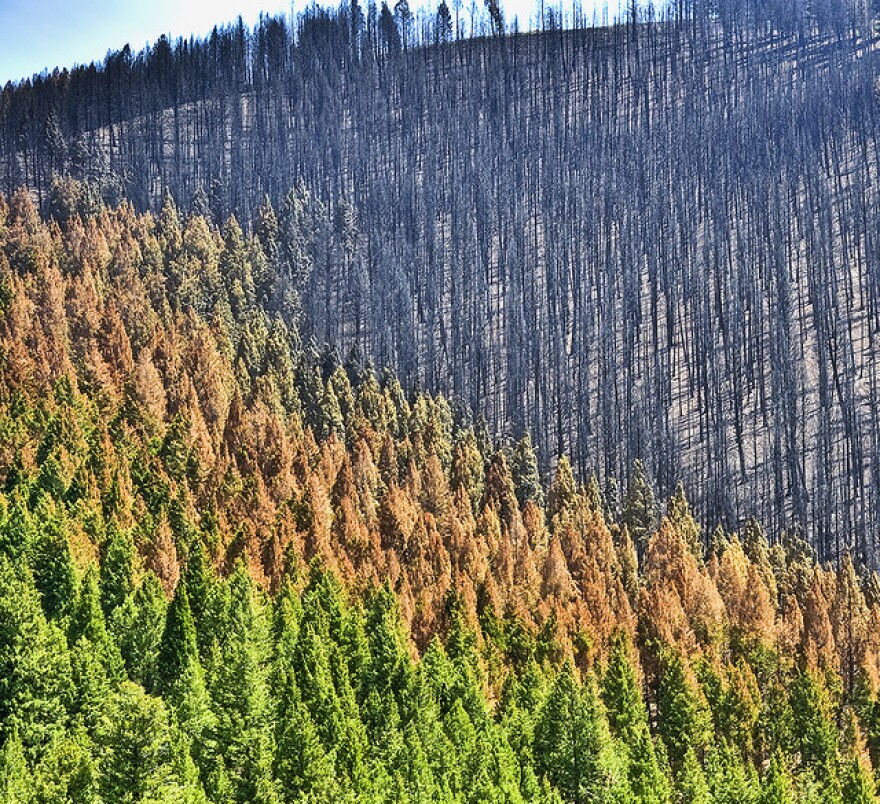So far this year, wildfires have burned almost 2.8 million acres across the country. It’s been a deadly year too, with 19 hotshots killed in one Arizona blaze and homes destroyed in states including Colorado and California. In southern Idaho, smoke, road closures and threats to homes are reminders of the destructive power of wildfires.
For people – wildfire is often synonymous with danger. But does danger necessarily mean “bad”? Are there “good” wildfires? According to Ken Frederick from the National Interagency Fire Center in Boise, this duality is not accurate.
“Fire is scientifically neither good nor bad: it just is," says Frederick. "It's like wind, it’s like gravity; it’s just part of our natural environment. But we have to recognize that fire plays a role – it’s there for a reason – especially in the western United States.”
Frederick says fire can be an ecological regulator injecting organic material back into the soil through ash. He says wildfires also reduce excess vegetation – known as fuel to firefighters – which keeps the bigger and more dangerous fires of recent years at bay. And, they have always been here.
“As long as there has been fuel and dry periods of the year and lightning we can say confidently that fire has always been a part of these ecosystems,” Frederick says.
But in the late 1800s, Western settlers saw wildfires as major threats. Frederick says when agencies like the Forest Service were created, control and immediate suppression of fires became the goal.
In the 1970s there was a policy shift: forest fire officials began talking about fire "management," rather than suppression.
Frederick says wildfire managers now have a checklist. For example, if a naturally sparked fire occurs during a wet season, firefighters may choose to let it burn. Frederick says that allowing some wildfires to burn could help reduce more dangerous fires in the future.
He adds that during drought years like the one Idaho is experiencing now, wildfires will be fought aggressively until they are out.
Copyright 2013 Boise State Public Radio




